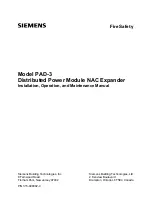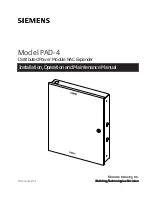
6
recommended speed chart
tool/attachment
function
speed
maximum
capacities
knife blade
Cake making
1 – 2
1,2Kg/2lb 6oz total weight
Rubbing fat into flour
2
300g/11oz flour weight
Adding water to combine pastry ingredients
1 – 2
Chopping & pureeing
2
400g/14oz chopping lean
meat total weight
Thick soup mixes (600ml liquid to 600g dry
1.2 litres/1 pt 16 fl oz
ingredients).
Process vegetables with
start on 1 and
300ml water until finely chopped, add
increase to 2
the remaining water until incorporated.
Thinner soup mixes/milk
600 ml/18 fl oz
dough tool
Yeasted mixes
2
340g/12oz flour weight
twin beater geared metal whisk
Egg whites
2
4
Cream
1 – 2
250 ml/7
1
⁄
2
fl oz
discs - slicing/grating
Firm food items such as carrots, hard cheeses
2
–
Softer items such as cucumbers, tomatoes
1
–
rasping disc (if supplied)
Parmesan cheese, Potato for German
2
–
potato dumplings
citrus juicer (if supplied)
Citrus fruits
1
–
liquidiser
All processing
2
1.2 litres/1 pt 16 fl oz
glass mill (if supplied)
Herbs
2
10g/
1
⁄
2
oz
Nuts, coffee beans
2
50g/2oz
Uncooked meat - beef steak - cut into 2
1
⁄
2
cm cubes 2 (5 secs)
50g/2oz
centrifugal juicer (if supplied)
Hard fruit and vegetables ie carrots and apples
2
800g/1lb 12oz
Soft fruit ie tomatoes and grapes
1
500g/1lb 2oz
using the attachments
Refer to recommended speed chart for each attachment.
knife blade
The knife blade is the most versatile of all the attachments.
The length of the processing time will determine the texture
achieved. For coarser textures use the pulse control.
Use the knife blade for cake and pastry making, chopping
raw and cooked meat, vegetables, nuts, pate, dips,
pureeing soups and to also make crumbs from biscuits and
bread.
hints
G
Cut food such as meat, bread, vegetables into cubes
approximately 2cm/3/4in before processing.
G
Biscuits should be broken into pieces and added down the
feed tube whilst the machine is running.
G
When making pastry use fat straight from the fridge cut into
2cm/3/4in.cubes.
G
Take care not to over-process.
dough tool
Use for yeasted dough mixes.
G
Place the dry ingredients in the bowl and add the liquid
down the feed tube whilst the machine is running. Process
until a smooth elastic ball of dough is formed this will take
60 secs.
G
Re-knead by hand only. Re-kneading in the bowl is not
recommended as it may cause the processor to become
unstable.
twin beater geared metal whisk
Use for light mixtures only eg egg whites, cream, evaporated
milk and for whisking eggs and sugar for fatless sponges.
Heavier mixtures such as fat and flour will damage it.
using the whisk
1 Fit the bowl onto the power unit, add the detachable drive
shaft.
2 Push each beater securely into the drive head.
3 Fit the whisk by carefully turning until it drops over the drive
shaft.
4 Add the ingredients.
5 Fit the lid - ensuring the end of the shaft locates into the
centre of the lid.
6 Switch on.
important
G
The whisk is not suitable for making one-stage
cakes or creaming fat and sugar as these mixes
will damage it. Always use the knife blade for
cake making.
hints
G
Best results are obtained when the eggs are at room
temperature.
G
Ensure the bowl and whisks are clean and free from grease
before whisking.
G
Carefully fold in flour and sugar by hand using a metal spoon
for fatless sponges and meringues.
Summary of Contents for FPM250 series
Page 4: ...ck cl cm cn co cp cq cr cs 9 bk bm bn bl bo ...
Page 161: ......










































